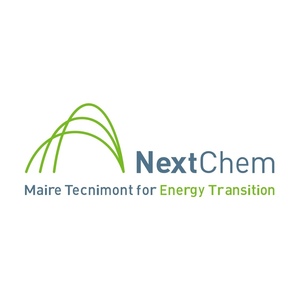NextChem awards LanzaTech process design contract

October 26, 2022
BY LanzaTech
Maire Tecnimont S.p.A. announces that NextChem, through its subsidiary MyRechemical, has kicked off the engineering phase of Hydrogen Valley in Rome, which is based on NextChem’s waste-to-chemical technology and has received the EU Commission grant within IPCEI HY2USE initiative, as already communicated.
NextChem has started, through MyRechemical, the engineering of waste conversion to Circular Gas that will be the feedstock for the ethanol and hydrogen production. In this framework, NextChem has awarded LanzaTech an engineering contract to deliver a process design package for a syngas fermentation unit to produce circular ethanol for sustainable mobility and chemicals based on its biocatalyst technology.
Advertisement
MyRechemical’s chemical conversion technology allows the recovery of waste that cannot be mechanically recycled as well as other types of non-recyclable dry waste. The engineering phase of the Hydrogen Valley is expected to be completed in 2023.
LanzaTech is a global leader in gas fermentation, making sustainable fuels and chemicals via biological conversion of waste carbon emissions, including industrial off-gases. LanzaTech’s expertise in fermentation scale up, reactor design, machine learning and synthetic biology has enabled the company to commercialize its recycling process and demonstrate production of 100 different chemicals.
Alessandro Bernini, CEO of Maire Tecnimont Group and NextChem, said “We are very proud to have started the engineering activities of the first NextChem Hydrogen Valley. This agreement with LanzaTech is the first deployment of the existing cooperation with such a recognized player and represents an important step forward in our energy transition journey.”
Advertisement
“Our thanks to the European Commission IPCEI program for enabling this project with NextChem in the Rome area,” said Jennifer Holmgren, CEO of LanzaTech. “We expect that combining our technologies will create a closed loop system for a new low-carbon economy. By working together, we can keep fossil resources in the ground, while creating value. We can turn the carbon and hydrogen in these waste streams into the things we use in our daily lives.”
Related Stories
The U.S. EPA on May 14 delivered two RFS rulemakings to the White House OMB, beginning the interagency review process. One rule focuses on RFS RVOs and the other focuses on a partial waiver of the 2024 cellulosic RVO.
The U.S. EPA on May 15 released data showing nearly 1.79 billion RINs were generated under the RFS in April, down from 2.09 million generated during the same month of last year. Total RIN generation for the first four months of 2025 was 7.12 billion.
Calumet Inc. on May 9 announced sustainable aviation fuel (SAF) capacity at its Montana Renewables biorefinery is expected to reach 120 MMgy to 150 MMgy sooner than previously reported for a fraction of the originally expected cost.
Tidewater Renewables on May 8 announced that its 3,000-barrel-per-day renewable diesel plant in Prince George, British Columbia, operated at 75% capacity during the first quarter, up from 71% during the same period of last year.
Aemetis Inc. released Q1 results on May 8, reporting increased biogas production, progress with efficiency improvements at the Keyes ethanol plant, and resumed biodiesel deliveries. Financing activities are also underway for a proposed SAF project.
Upcoming Events










